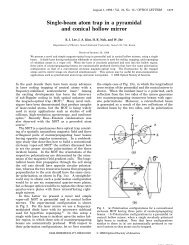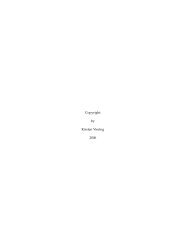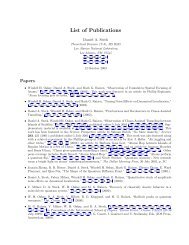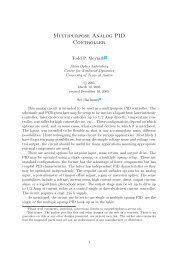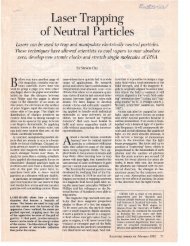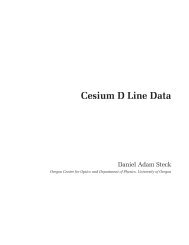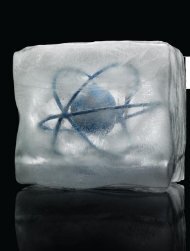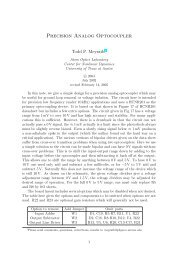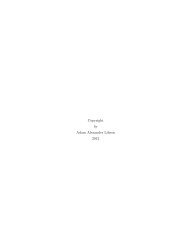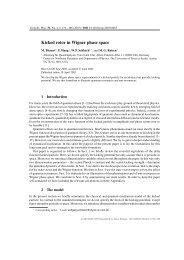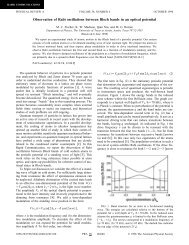Ph.D. Thesis - Physics
Ph.D. Thesis - Physics
Ph.D. Thesis - Physics
You also want an ePaper? Increase the reach of your titles
YUMPU automatically turns print PDFs into web optimized ePapers that Google loves.
Chapter 10<br />
Conclusions and outlook<br />
This thesis presents a study of two of the most important problems facing quantum sim-<br />
ulation: precision limitations and scalability. We have looked both at digital quantum<br />
simulation, concentrating specifically on a quantum simulation of pairing models using nu-<br />
clear magnetic resonance (NMR), and at analog quantum simulation, focusing on scalable<br />
two-dimensional ion trap architectures. We have also studied, in theory, the problem of<br />
two ions interacting over a conducting wire, made experimental measurements of the effect<br />
of the wire on the trap potentials, and discussed possible application to both digital and<br />
analog quantum simulation. Here we summarize the main results of the thesis, and look<br />
ahead to the new challenges raised by this work.<br />
In Part I, we examined one method of digital quantum simulation using a nuclear spin<br />
system. We saw that the precision of quantum simulation using Fourier transform meth-<br />
ods faces limitations to the attainable precision arising from both intrinsic and system-<br />
dependent sources. The intrinsic sources include the sampling rate of the Fourier transform,<br />
related to the collapse of the quantum state upon measurement, as well as the natural de-<br />
coherence time of the system. Further, the use of error correction increases this inefficiency<br />
due to the large number of extra gates required. The primary system-dependent limit is<br />
due to control errors, which although present in any experimental system, have been stud-<br />
ied by us specifically for the NMR system. We conclude that for algorithms of this type,<br />
quantum simulations are not necessarily more efficient than classical ones with respect to<br />
the precision of the final result.<br />
Despite these limits, digital quantum simulation may be of great use when no classical<br />
approximation is available, and when a limited precision is acceptable. Since a (universal)<br />
digital quantum simulator is essentially a quantum computer, the wealth of contemporary<br />
research into quantum computing technology is directly applicable to quantum simulation.<br />
However, there are to date few experimental results for digital quantum simulation using<br />
scalable technologies such as ion traps. All the digital quantum simulation experiments<br />
prior to this thesis were done in nuclear spin systems. Although the precision limitations<br />
enumerated in this thesis are independent of the quantum model system being used, more<br />
213




